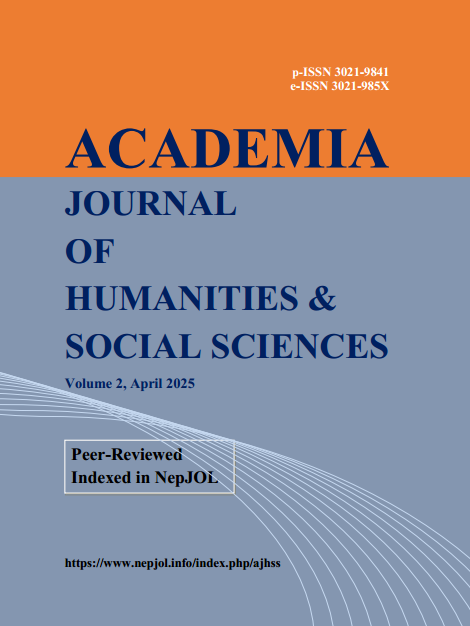The Use of Artificial Intelligence among University Students: A Narrative Inquiry
DOI:
https://doi.org/10.3126/ajhss.v2i1.77160Keywords:
Artificial Intelligence (AI), higher education, writing assignments, ethical practicesAbstract
Students in higher education institutions are now more frequently using artificial intelligence (AI) in their writing assignments. This paper investigates the main purposes of university students, using AI tools while writing their assignments. The study employs narrative inquiry as a qualitative research method through interviews. The interviews were conducted with five students of Master's Level at Myagdi Multiple Campus (MMC), Beni Bazaar, Nepal. The thematic analysis method was used to identify the patterns and trends of using AI tools. The utilization of AI in writing assignments serves ten prime purposes which include a better understanding of difficult terminology, idea generation and refinement, literature exploration, production of video and slides, improvement in academic writing followed by visualization of big data, accessing resources, and the conduction of research. This study highlighted that AI proves beneficial for speedily understanding complex questions and capability to reach multiple academic resources. It demonstrates that AI enables university students to execute various tasks throughout their academic assignments. The study demonstrated that students use AI to boost their learning performance as well as to optimize their work efficiency throughout their assignment stages. The findings of the study concluded that educational institutions should incorporate AI tools partially into their framework, embracing ethical practices that develop the analytical abilities of students.





